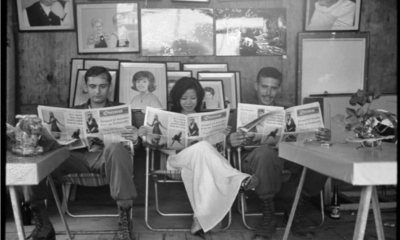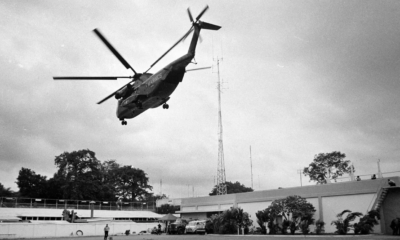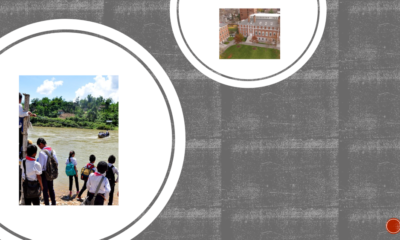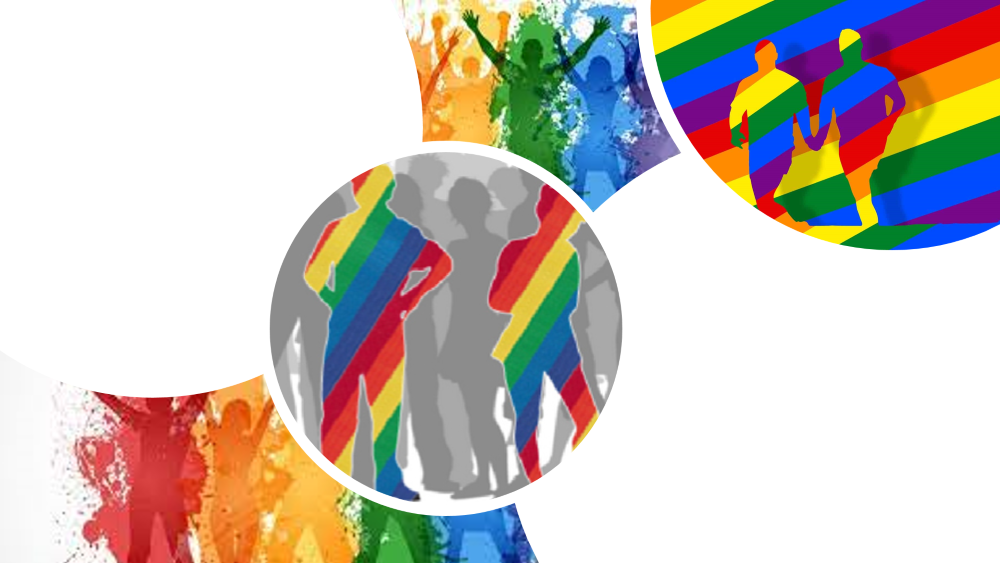Anna Nguyen
Tell me a little bit about your career journey as an author and any related work you do in that field.
I’m a writer. I’ve written a few books: The Empress of Fortune, and When the Tiger Came Down the Mountain. My first full-length novel, The Chosen and the Beautiful, came out just a few months ago on June 1, 2021. My next novel, Siren Queen, is coming out on May 1 of next year. I am 40 years old and have been a writer for my whole life but I’ve only gotten paid for it for the last 15 or so. Went to the University of Illinois, born in Peoria, currently living in Milwaukee, WI. I’ve been writing a lot of professional sci-fi and fantasy for about 15 years off and on, mostly in short story form. In the meantime, I’ve mostly been paying the bills with ghostwriting and copywriting.
Some of the first fantasy I think I read was actually from Laurence Yep, who writes a lot of Chinese American YA fantasy. Dragon of the Lost Sea was at my middle school library. I loved it and it just sort of launched all of that, but making the leap to writing adult fantasy and sci-fi came from me going to garage sales with my parents as a kid and picking out covers from the 70s and 80s. I have just the best, brightest, most ridiculous covers. You know they say never judge a book by its cover, but I’m like, that’s where all the unicorns and dragons are. So it was just mostly a matter of having something within reach that I could acquire and then it just sort of took off from there.
What challenges have you faced as an openly queer person in the Vietnamese American community?
How about the overwhelming silence? Let’s start there. The quiet, the complete lack of conversation and basically that space where there are other questions but they don’t get asked. That’s mostly what I encounter. A quiet and a sense of invisibility.
I think there’s this generation gap that exists within the Vietnamese American community. I was born in the United States, just a couple of years after my mom made it to America. My dad had been over for a little bit longer, but not by much. We were in a fairly isolated situation, there were few Vietnamese families in Peoria, which is in central Illinois. The closest Vietnamese population probably would have been in Chicago, and that’s like a good three hour drive. So I think for us, there is both the silence of being an isolated refugee family in Illinois during the 80s, and then on top of it, you have the idea that this strange feeling of everything that comes after immigrating to a new country. Finding new lives, assimilating into the local culture, everything gets thrown up in the air and we weren’t really sure how it was supposed to come down. As someone who’s always been definitely a little Macchiavellian, being a little mercenary in my approach to live came in my favor because it’s not like I got to write any sort of rules. But I did get to aim things in my favor, and I think that’s where some of the quiet comes from. There’s just a lot of confusion over things like “what the hell is that girl doing now,” you know?
Do you think that queerphobia exists in the Vietnamese American community? If so, why?
Respectability politics. I’ve had 40 years to watch this in action, to see people look for the advantages and the chance to do better for themselves than they have done in the past. This is where respectability comes in. And it’s something the queer community deals with a lot, in the idea that if you want to be better, you have to be better than someone else. And that’s where I feel a lot of the queerphobia comes in, with the idea that there is something that is not respectable about being queer, about being too far from the norm or where’s the right place to be. And there’s the idea that what you do reflects on your whole community. So if there is a root for queerphobia in the Vietnamese American community, I would say that it goes straight down to respectability politics.
I definitely agree. I’ve realized that Vietnamese American culture, especially the refugee community, has been informed by Confucian philosophy. And that translates into interesting family dynamics as well. I think that the conditions this generates sets up the grounds for respectability politics to really become entrenched in this community.
And power dynamics. The idea that you have a community that has been disempowered, and I mean, in every community that I’ve ever been a part of, whether it’s a nonprofit or activist space or charity, it comes down to power and who has it or doesn’t. And when you have people who have had their power taken away from them, it can get nasty in terms of what they’ll to do get it back. It’s a bad place and can be dangerous the further off from the norm you are.
As an openly queer person, how has this part of your identity impacted your relationships with your loved ones?
Let’s see, once again we have entered that very quiet space. I have been, more or less, openly queer since I was about 14. However, I didn’t openly come out to my parents until about three years ago, and that was specifically done because they were going to either find out about it from me or from an interview I did with someone from the Washington Post.
I mean, there’s a big age gap between 14 and 37. That’s a long time. And still, I didn’t see it as the keeping a secret, it was just an idea of what was and wasn’t discussed. Again, I keep coming back to the idea of the quiet and the things it smooths over and makes easier for everyone. But at some point, it just became a situation where it’s like, okay, you will find out from me or someone else. And what I think I’ve come to with my family is just a sense of confusion. On top of that, the great joy of being a queer person is that I get to question exactly what I want and how normative I want my life to be. I’m not married, I don’t have kids or a home. When you’re part of a community that plays respectability politics as hardball, as mine does, it gets awkward and there’s a lot of puzzlement. There are a lot of questions that come, questions that feel around the edges of the situation and it’ll just chip at you.
Yeah, there are these layers of sharing and intimacy. But it doesn’t feel not intimate to avoid that conversation. But you have to think about whether it’s withholding or whether you’re being dishonest, and then you realize at some point that honesty is the biggest monument that we’re trying to hit here. That’s actually the goal, and perhaps the bigger goal is to be kind and to make the world as comfortable as we can. It’s a deeply personal thing, you know, and there are all these questions right now about being out in general, like what it means and what we owe to the world. And as I get older, I’m not sure how much I owe the world in general beyond doing my best where I can.
You said you grew up in Peoria, where there weren’t a lot of Vietnamese folks. In terms of the political culture there, do you think the community would have been more accepting of the Vietnamese folks they interacted with?
One thing that has weirdly come up a lot in my interviews is this focus on wholeness in a lot of speculative fiction, fantasy, and sci-fi novels. We have a lot of narratives in common with mainstream media as well, like who is the real you and what it takes to be a unified person. Going back to the idea of the coming out narrative, what I think I’ve come down to is that there’s no such thing as a whole person, or if there is, I’m not one. It seems too dramatic and dark to say that I’m fractured, but on the other hand, that feels like a very comfortable place for me to be. It’s the person I’ve always been. I’ve always been a person in pieces. And if I was ever uncomfortable with it, I’m not uncomfortable with it now. Every piece is me, every piece is real, and every instance is real. And that’s the hard thing, to try to assimilate in a world that wants you to be one story. And here, we hit this intersectionality. When you’re queer, when you have a refugee background, when you’re not white, it’s easy to see yourself in pieces that need to be put together. I don’t think that’s a problem though. It’s not a problem to be in pieces if you know where all of them are. It’s made me sort of put a lot of things together, so that’s been fun.
What intersections do you see between the LGBTQ and Vietnamese American communities? Are there spaces for queer Viet Americans to explore the parameters of these identities?
The intersection is, as I mentioned, respectability politics. There is nothing that is going to kill you faster than respectability politics. I think that’s one of the darkest shadows both communities face. Both communities have a certain strength and resilience that only comes from having so many people being outside your doors. It gives you strong walls, but at the same time, it doesn’t necessarily give you a lot of doors.
I think we make those spaces, the ones for queer Vietnamese Americans to explore the parameters of their identities. Every day, we make them over and over again simply by being who we are and by being open about it. I remember volunteering for a couple of years with the Milwaukee LGBT Center. I mostly go to Pride as a volunteer. I volunteer at the library too; we give away books and get donations. It’s fantastic. And I still remember the first time I saw other queer Asian Americans, and that was just a huge moment for me. We make this space by being ourselves, and as there are more of us speaking out, I think that space grows larger. That is something we have simply by virtue of existing.
You’re an author who is able to weave these themes of gender, sexuality, and power into your books, particularly The Chosen and the Beautiful. To what extent do elements of your own identity impact your writing?
I think what this comes down to is that it’s more or less inescapable. The person you are always comes out in the work you do. You can try to hide it, you can try to be someone else. You can even be successful about it for a while, but the more personal you go, the more the person you are comes out in your work. Whether that work is music, writing, or visual art. It’s inevitable, and is one of the reasons why I chose to write the stories I do.
Could you tell me more about the second book you’re writing, called the Siren Queen?
Siren Queen was actually written about 3-4 years ago, and it was the first book that I shopped around. I submitted it to a novel competition that did not require an agent because I thought that sounded faster. I wrote it fairly quickly, sent it in, and got very close to publishing with that publisher. Then I was like fine, I’m just going to start sending it to agents. And while doing that, Tor.com had its call for submissions from novellas that also did not require agents. The submission requirement was only 20,000 words, and I was like, I can write that. It took about a month to write The Empress of Salt and Fortune. I sent it off, and basically the same week that Ruoxi Chen at Torkham picked it out of the slush pile, my agent Diana Fox basically signed me for Siren Queen. It needed a fair amount of work because it had never really been edited by anyone before, but while we were working on that, I was writing another novel. Diana had asked me if there was anything else I had in mind to write, and so I just spat out the plot for The Chosen and Beautiful. She then told me that The Great Gatsby was coming out of copyright next year, and said to me, “Stop the book you’re writing here. I’d like you to write this instead.” I wrote The Chosen and the Beautiful in 2 months and it was picked up in a deal with Tor with Siren Queen. So yeah, Siren Queen was actually written first and it’s coming out second next year.
In your opinion, how do you think Vietnamese American tolerance or intolerance to queerness has changed in recent years, if at all? What do you see this relationship looking like in the future?
I think queerness has become a thing that is much harder to ignore for the Vietnamese American community. As a more vocal and hopefully less traumatized generation grows up, we’re talking more about who we are, even if it doesn’t actually suit a narrative that we grew up with. I think we’re growing louder and more demanding of our space, our needs, and advocacy for ourselves. That can only be a good thing. Regardless of where that ends up on an individual level, I do believe that it will open up the dialogue that we spoke of earlier. It’s going to make space for Vietnamese American queers to explore themselves and the world they would like to see created. We’re not brought up to demand a lot, and I think that’s part of it. I think what it comes down to—which the queer community has had to find out time and again—is that it’s not enough to ask. It becomes a demand, but we’re not demanding anything from a traditional Vietnamese American family, right? But it’s going to happen, whether we like it or not. And I think that’s only going to be good.

 Politics & Economy4 years ago
Politics & Economy4 years ago
 Politics & Economy1 year ago
Politics & Economy1 year ago
 Society & Culture5 years ago
Society & Culture5 years ago
 ARCHIVES5 years ago
ARCHIVES5 years ago
 After 19751 year ago
After 19751 year ago
 Politics & Economy4 years ago
Politics & Economy4 years ago
 Politics & Economy5 years ago
Politics & Economy5 years ago
 Politics & Economy4 years ago
Politics & Economy4 years ago







